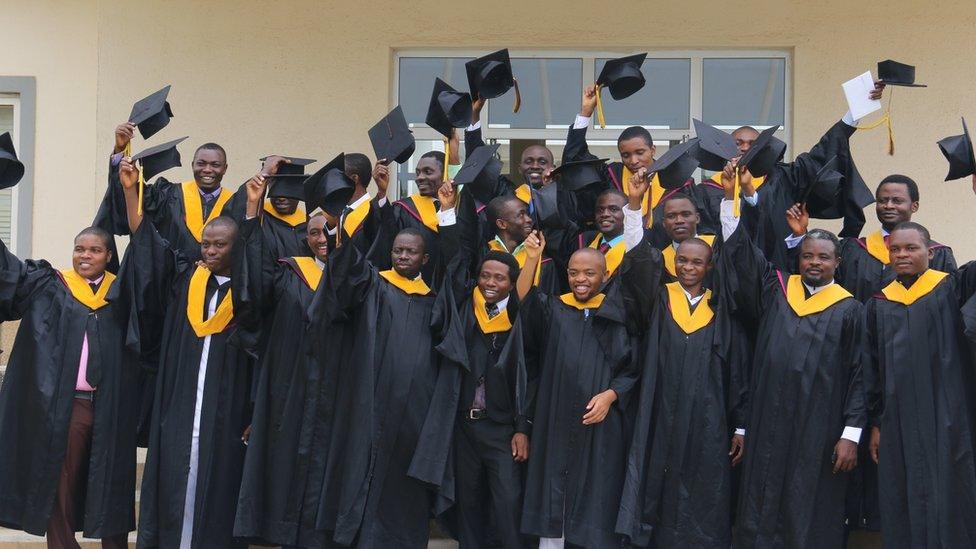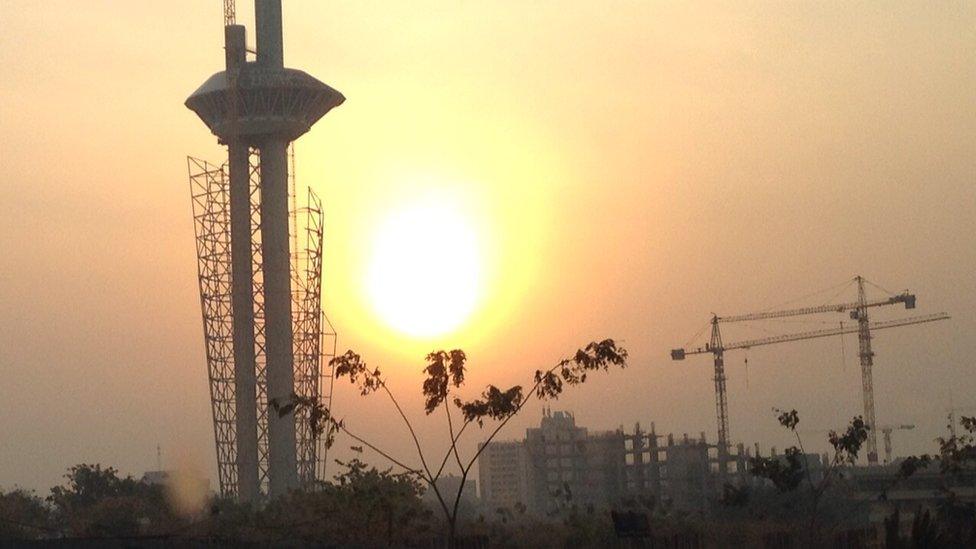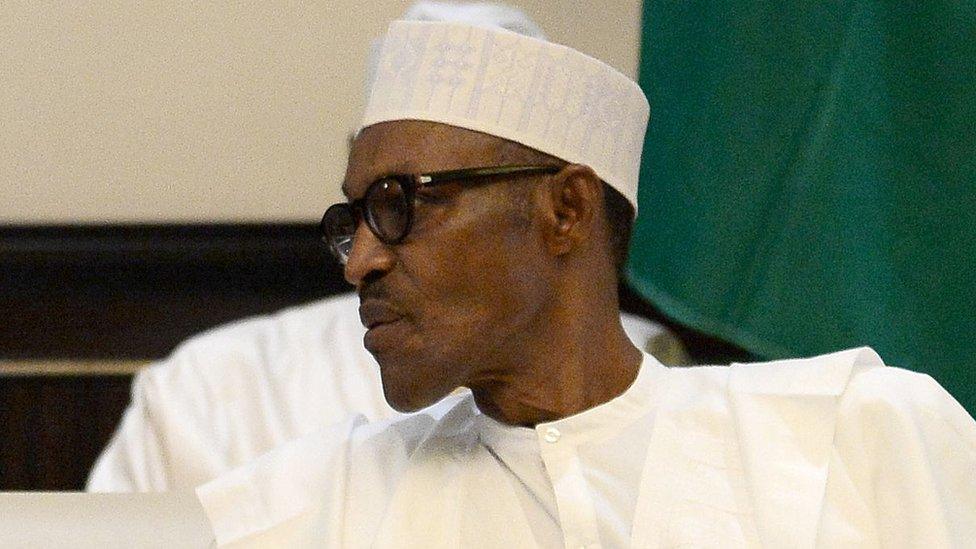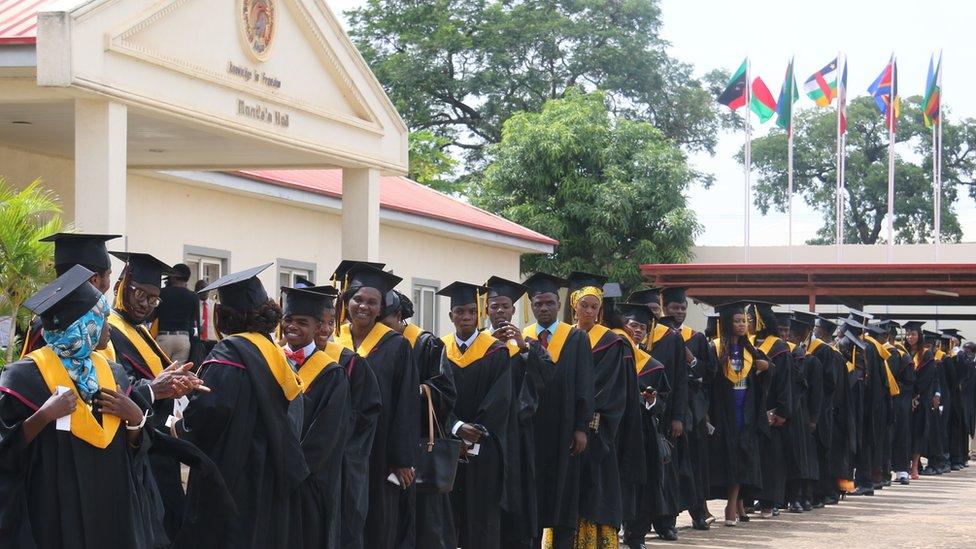Letter from Africa: More science and less politics
- Published

In our series of letters from African journalists, Ghanaian writer Elizabeth Ohene considers the importance of teaching science.
I went to the Nigerian capital, Abuja, earlier this month to attend a graduation ceremony.
Abuja had always seemed to me to be a suitable place for serious scientific research.
It is the politics that seemed to me to be out of place.
I once suggested that the new Nigerian capital was a soulless, un-Nigerian place that would never get the verve and tempo of a truly Nigerian city.

Abuja was built in the 1980s and became Nigeria's official capital in 1991
When Nigeria won the bid for the African University of Science and Technology (AUST) to be sited in Abuja, it did strike me that it was probably a good place to put a science and technology institution.
AUST was established in 2007 and meant to answer the call by former President Nelson Mandela of South Africa that the World Bank and the African Union work together to create strong pan-African centres of excellence to improve sub-Saharan Africa's capacity in science and technology.
Thus was born a network of the now so-called Nelson Mandela Research Institutes.
AUST in Abuja was the first of these centres of excellence and the others are in Burkina Faso, Tanzania and South Africa.
The story of how the bid was won, how the then-minister of finance convinced the president and the Abuja minister to support the project and how a group of Africans in the diaspora came together to push it and how the then-president of the World Bank was made to give a substantial grant, all deserve to be told one day, as it is a truly interesting story - but at the moment I just want to tell the story of the graduation ceremony.
Medical tourism
After almost 10 years of existence, AUST has an impressive campus and offers graduate-level programmes.

President Buhari has been on holiday in London where he saw a specialist about an ear infection
Fifty-one students graduated at the master of science level and 17 at the doctoral level.
But the day I got to Abuja, the only story in town was President Muhammadu Buhari's trip to the UK to seek medical attention.
Should he have gone outside the country to seek medical attention?
Was that a vote of no confidence in Nigerian doctors and the health care available in the country, and did he not promise to end so-called medical tourism?
The graduation of the scientists did not get a mention anywhere.
'Disturbing statistics'
At the graduation ceremony, 13 young men and women got masters of science in computer science, seven got MScs in material science and engineering, 15 got MScs in petroleum engineering, eight got MScs in pure and applied mathematics and eight got MScs in theoretical and applied physics.

Students are able to go to AUST on a full scholarship
The disturbing statistics that the AUST was set up to correct showed just how badly served sub-Saharan Africa was in the field of science and technology.
There were apparently 83 scientists to a million people in sub-Saharan Africa, whilst other parts of the world were doing more than 1,000 scientists to a million people.
It struck me the deficit was not going to be redeemed immediately but at least AUST made you feel work had started on the problem.
The thesis topics for the PhD students fascinated me or if the truth be told, overawed me.
I could just about work out what was meant by a Ghanaian student's "Implantable Composite Devices for the Localised Treatment of Breast Cancer" for a PhD in material science engineering; and I could get excited about the "Biodegradation and Recycling of Polythene into Composite Building Materials".
It occurred to me that President Buhari and other African presidents might not need to travel abroad for healthcare if we graduated more of such people.
I always believed Abuja's real purpose of existence ought to be the promotion of science.
You needed to be on that campus and see me cheering the reverend sister who won the overall prize in mathematics and you would buy into my theory.
We should have more science and less politics in Abuja.

More from Elizabeth Ohene:
